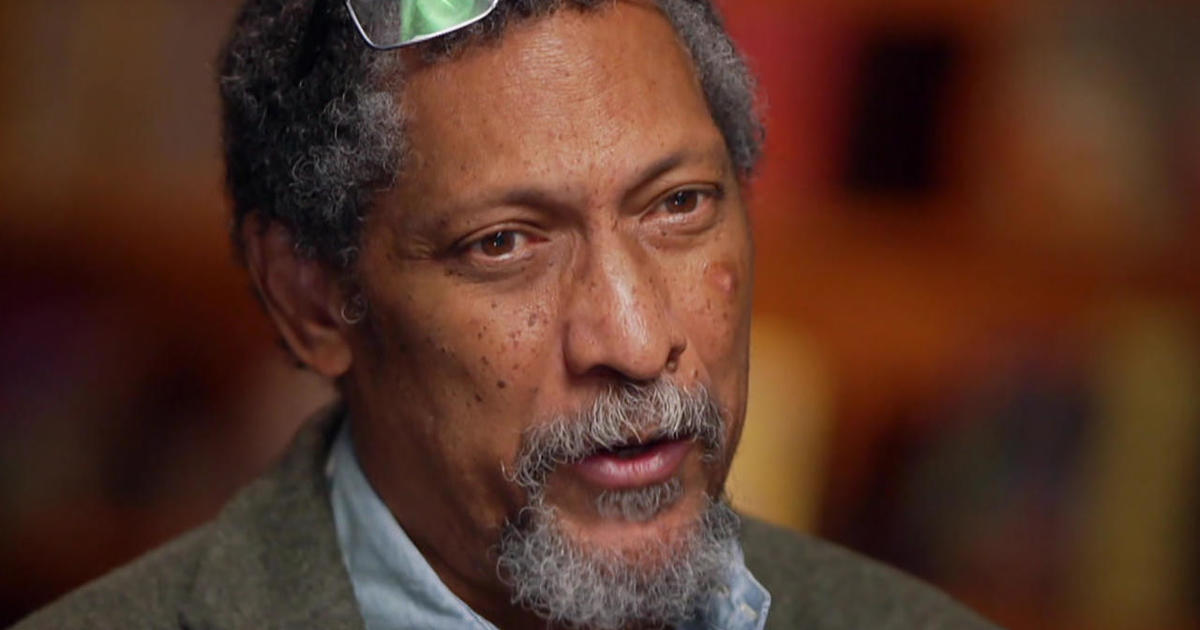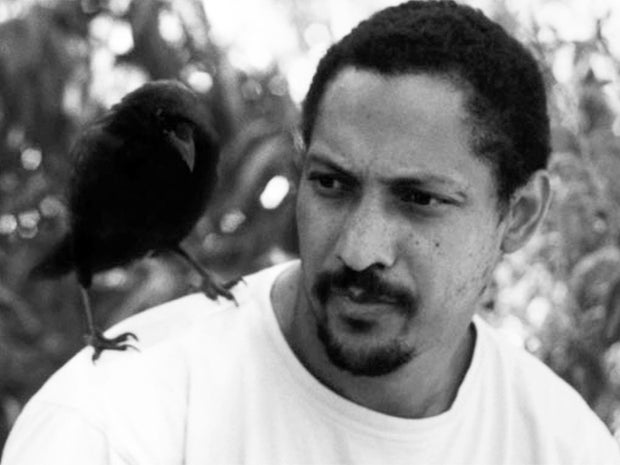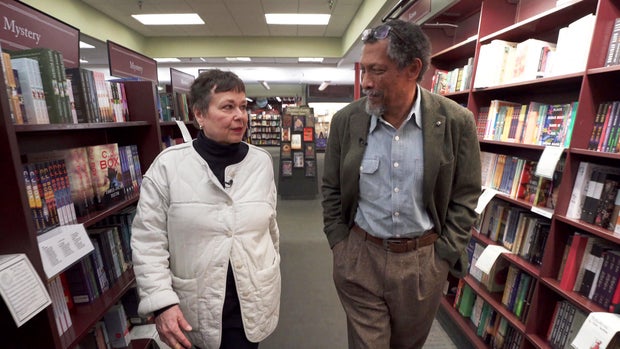Who, besides Percival Everett, would have a pet crow named Jim Crow? “When he was on my shoulder, when I wrote the novel ‘Erasure,’ if I wasn’t paying enough attention to him, he would march down my arm and peck at the keys,” Everett said. “So, I do credit him for having written some of the novel.”
Percival Everett
Consider the irony (one of Everett’s favorite literary devices) that “Jim Crow” helped him write a book about race – a novel-within-a novel satirizing publishing industry complicity in perpetuating stereotypes of Black America. “Erasure,” published in 2001, has been turned into the Oscar-winning film, “American Fiction,” starring Jeffrey Wright.
Another irony: The film he had nothing to do with (but likes) has given Percival Everett more visibility than the 30+ books he’s written, or the fact that he’s been shortlisted for the Booker Prize, and a finalist for a Pulitzer.
Everett’s books are often perversely funny. Imagine a funny novel about lynching (“The Trees,” from 2021), written in the form of a police procedural. Funny, until it isn’t. “Humor is interesting,” he said, ” because if I can disarm a reader with humor, then I can address serious stuff.”
Everett’s latest novel, “James,” is a re-telling of Mark Tain’s “The Adventures of Huckleberry Finn,” from the point-of-view of Huck’s enslaved friend, Jim. In it, language is a running joke, but also dangerous.
The enslaved people, Jim in particular, speak in what would commonly be called standard English. But they slip into dialect when they’re around White people.
“Papa, why do we have to learn this?”
“White folks expect us to sound a certain way, and it can only help if we don’t disappoint them,” I said. “The only ones who suffer when they are made to feel inferior is us.”
Doubleday
In “James,” a man is lynched for stealing a pencil so Jim can write his story.
“In language, and in ownership of language, there resides great power, and resides an avenue to any kind of freedom that we’re going to have,” Everett said.
He uses words considered “not politically correct,” such as the N-word. “‘Cause I’m telling the truth,” Everett said. “You know, if somebody came in here right now and said, Hey you, N-word, am I gonna be less offended than if they use the word n*****? No. That focus on the word misses the point. I don’t care about the word. I care about the intention. I care about the meaning. I’m not impressed with attempts to cover up anything.”
CBS News
Everett, the son of a dentist, grew up in Columbia, South Carolina. He’s from a long line of physicians – and says the only thing he knew growing up was that he didn’t want to be a doctor.
Why? “They had to be around people all the time!” he explained.
He discovered he does like being around animals (“I’ve never had an animal lie to me!”). On the way to becoming a prolific writer, and a distinguished professor of writing at the University of Southern California, Everett trained horses, and even mules.
He is intensely private, protective of his home and family, and only shows up for book events when he has to. He would rather be fly-fishing. He ties his own ties. “I like small streams, so I fish with very small flies,” he said. “It frees me to think.”
He also paints. A solo show, his fourth, opens in Los Angeles next month, his vocabulary as abstract as his writing is explicit.
CBS News
He said, “Working with stories is internal and sedentary. I love the physicality of making the paintings. I don’t consider them differently. I consider them as things I do to explain to myself my place in the world.”
And where does race figure into Percival Everett’s worldview, given that his books confront it? “Do I think about race? No, but it’s there. Sadness? Sure. Why not? What’s had to be sadness. The reality, yeah, do I really care? No. I can’t change this cultural tsunami that happened 400 years ago, and the waters of it are still waiting to recede.”
And writing his books doesn’t take steps in that direction? “One hopes!” he laughed. “I just do what I can, and move on.”
WEB EXTRA: Percival Everett: Those who ban books are “small and frightened people” (YouTube Video)
Read an excerpt: “James” by Percival Everett
Read an excerpt: “Dr. No” by Percival Everett
For more info:
Story produced by Amol Mhatre. Editor: Chad Cardin.









